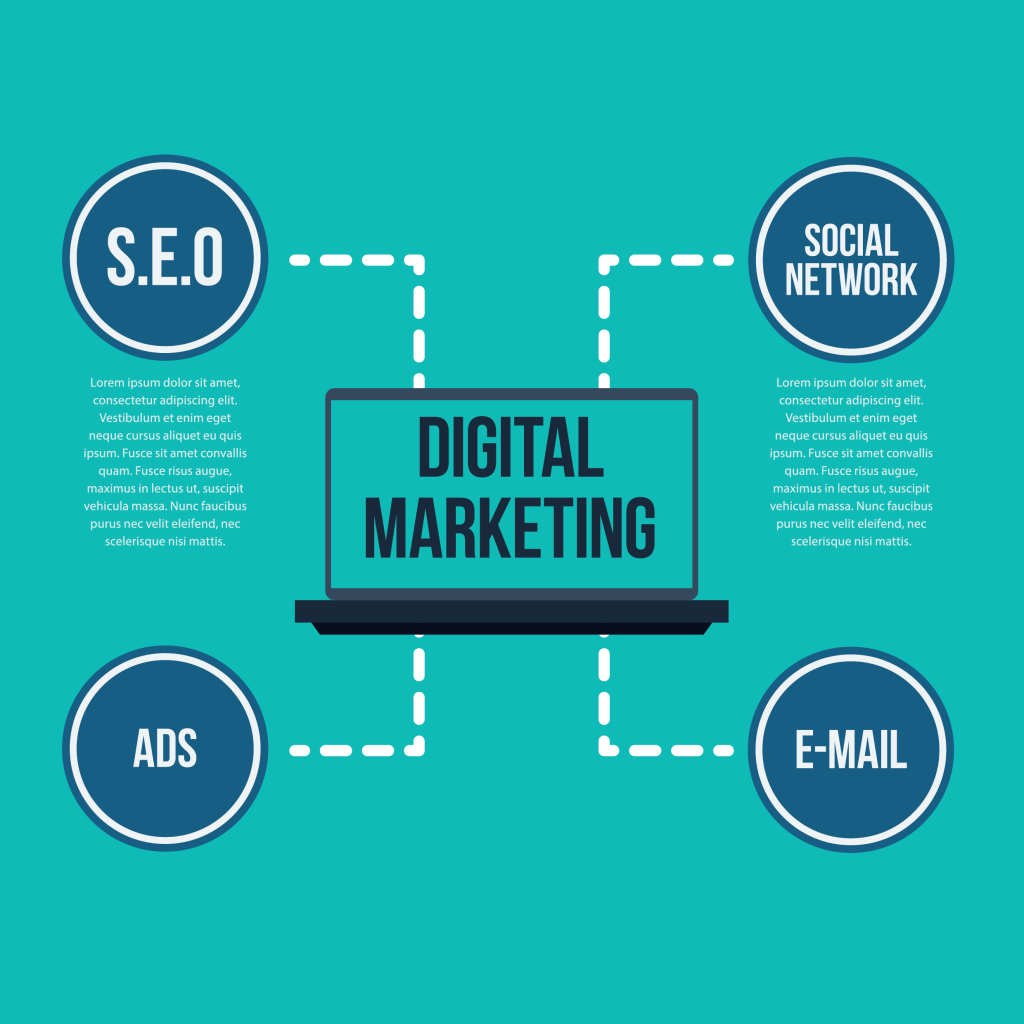In today’s digital age, establishing a strong online presence is vital for the success of small businesses. With the right digital marketing strategies in place, small businesses can effectively reach their target audience, increase brand awareness, and drive valuable conversions. In this blog post, we will explore ten proven digital marketing strategies specifically tailored for small businesses. From search engine optimization (SEO) to social media marketing and content creation, these strategies will empower small businesses to thrive in the competitive online landscape.
Embrace the Power of SEO
Search engine optimization (SEO) is a cornerstone of any successful digital marketing strategy. By optimizing your website and content for search engines, you can improve your organic visibility and attract valuable traffic. Start by conducting keyword research to identify the terms your target audience is searching for. Integrate these keywords naturally into your website’s meta tags, headings, and content. Additionally, ensure your website is user-friendly, mobile-responsive, and loads quickly, as these factors impact search engine rankings. Regularly create high-quality, informative content that provides value to your audience, and build backlinks from reputable websites to enhance your website’s authority.
Leverage the Power of Social Media
Social media platforms offer a powerful way to connect with your audience, build brand awareness, and drive traffic to your website. Identify the social media platforms that align with your target audience and focus on creating engaging and shareable content. Regularly post updates, photos, videos, and other forms of content that resonate with your audience. Encourage interaction by responding to comments, messages, and reviews promptly. Leverage paid advertising options offered by social media platforms to further amplify your reach and target specific demographics. Monitor social media analytics to gain insights into what content performs best and refine your strategy accordingly.
benefit of social media for small business
Increased brand awareness: Social media platforms provide a cost-effective way to reach a wider audience and increase your brand’s visibility. By creating engaging content and interacting with users, you can expand your reach and build brand recognition.
Targeted marketing: Social media platforms allow you to target specific demographics and interests, enabling you to reach the right audience for your products or services. This targeted approach increases the chances of attracting potential customers who are more likely to convert.
Improved customer engagement: Social media provides a direct line of communication with your customers. It allows you to engage with them, respond to their queries or feedback, and build meaningful relationships. This engagement fosters customer loyalty and encourages repeat business.
Cost-effective advertising: Traditional advertising can be expensive for small businesses. Social media advertising, on the other hand, offers various cost-effective options, such as pay-per-click or boosted posts, allowing you to maximize your budget and reach a larger audience.
Increased website traffic: Social media platforms are excellent sources of referral traffic. By sharing valuable content and including links to your website, you can drive traffic and potentially increase conversions. This can significantly impact your business’s online presence and overall success.
Market research and insights: Social media platforms provide valuable data and insights about your target audience, their preferences, and trends. By analyzing this information, you can make data-driven decisions, tailor your products or services, and stay ahead of the competition.
Collaboration and partnerships: Social media facilitates networking and collaboration opportunities with other businesses, influencers, or industry experts. Building partnerships can help you expand your reach, access new markets, and leverage each other’s strengths for mutual growth.
Increased sales and conversions: With a well-planned social media strategy, you can generate leads, nurture them through the sales funnel, and convert them into paying customers. By showcasing your products or services, offering promotions, and leveraging social proof, you can drive sales and increase revenue.
Enhanced brand loyalty: Social media provides a platform for you to connect with your customers on a personal level. By consistently delivering valuable content, providing excellent customer service, and showing appreciation to your followers, you can build a loyal community around your brand.
Competitive advantage: Embracing social media for your small business gives you a competitive edge over competitors who are not utilizing these platforms effectively. It allows you to stay visible, engage with your audience, and adapt to evolving market trends.

Boost Your Business With Digital Marketing Strategies For Small Business
Create Compelling Content
Content creation plays a pivotal role in digital marketing strategies for small businesses. Develop a content marketing plan that aligns with your business goals and target audience. Create blog posts, articles, videos, infographics, and other forms of content that educate, entertain, or inspire your audience. Incorporate relevant keywords into your content to improve its visibility in search engines. Share your content on various platforms, such as your website, social media channels, and email newsletters, to maximize its reach. Regularly analyze your content’s performance to identify topics and formats that resonate best with your audience.
Implement Email Marketing Campaigns
Email marketing remains one of the most effective ways to nurture leads and retain customers. Build an email list by offering valuable content or incentives in exchange for email addresses. Segment your email list based on demographics, interests, or buying behavior to personalize your messages. Craft compelling and engaging emails that provide value to your subscribers, whether through exclusive offers, educational content, or updates about your business. Utilize email marketing automation tools to streamline your campaigns and deliver targeted messages at the right time. Monitor key metrics such as open rates, click-through rates, and conversions to optimize your email marketing strategy.
Engage with Online Reviews and Testimonials
Online reviews and testimonials have a significant impact on consumer purchasing decisions. Actively engage with your customers by responding to their reviews, whether positive or negative. Addressing negative reviews promptly and professionally can help mitigate any potential damage to your brand’s reputation. Encourage satisfied customers to leave reviews and testimonials by offering incentives or making the process as easy as possible. Display positive reviews prominently on your website and social media platforms to build trust and credibility with potential customers.
Utilize Influencer Marketing

Influencer marketing has emerged as a powerful digital marketing strategy, particularly for small businesses. Identify influencers within your niche who have a significant following and engage with your target audience. Collaborate with them to promote your products or services through sponsored content, reviews, or endorsements. Influencers can help increase brand awareness, reach new audiences, and build trust with potential customers. When choosing influencers, ensure they align with your brand values and have an engaged and authentic following. Track the performance of influencer campaigns by monitoring metrics such as engagement, reach, and conversions.
Harness the Potential of Video Marketing
Video has become increasingly popular in digital marketing, with platforms like YouTube and TikTok dominating the scene. Create engaging and informative videos that showcase your products or services, provide tutorials, or share industry insights. Optimize your videos for search engines by including relevant keywords in titles, descriptions, and tags. Share your videos on your website, social media channels, and video-sharing platforms to maximize their visibility. Encourage viewers to like, comment, and share your videos to increase their reach. Monitor video analytics to gain insights into viewer behavior and preferences, allowing you to refine your video marketing strategy.

Invest in Pay-Per-Click Advertising
Pay-per-click (PPC) advertising is a cost-effective way for small businesses to drive targeted traffic to their websites. Platforms like Google Ads and social media advertising networks offer various options to reach your ideal audience. Conduct thorough keyword research and create compelling ad copy that entices users to click. Set a budget that aligns with your marketing goals and monitor your campaigns closely to optimize performance. Test different ad formats, targeting options, and landing pages to find the most effective combinations. Analyze key metrics such as click-through rates, conversion rates, and return on ad spend to make data-driven decisions and improve your PPC campaigns.
Prioritize Mobile Optimization
With the increasing use of smartphones, it is crucial for small businesses to optimize their digital presence for mobile devices. Ensure your website is mobile-responsive and provides a seamless browsing experience across various screen sizes. Optimize your website’s loading speed to avoid user frustration. Implement mobile-specific features like click-to-call buttons and mobile-friendly forms to enhance user experience. Consider developing a mobile app if it aligns with your business objectives. By prioritizing mobile optimization, you can capture the attention of on-the-go consumers and provide a positive user experience.
Digital marketing strategies play a crucial role in the success of small businesses. By embracing SEO, leveraging social media, creating compelling content, implementing email marketing campaigns, engaging with online reviews, utilizing influencer marketing, harnessing the potential of video marketing, investing in pay-per-click advertising, and prioritizing mobile optimization, small businesses can effectively reach their target audience, build brand awareness, and drive valuable conversions. With dedication, consistency, and the right strategies in place, small businesses can thrive in the competitive digital landscape and achieve long-term success.

